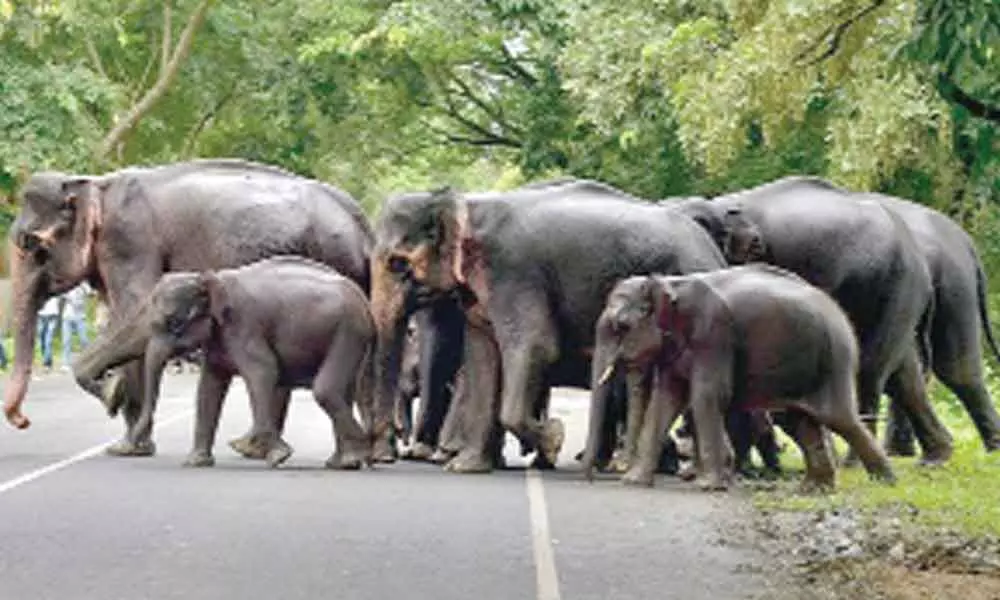Radio-collaring proves effective in checking wild elephant raids

Wild elephant raids
Wild elephant menace is common nowadays in most of rural areas situated in close proximity to the forests. They leave a trail of destruction in a night’s raid in agricultural fields.
Madikeri: Wild elephant menace is common nowadays in most of rural areas situated in close proximity to the forests. They leave a trail of destruction in a night's raid in agricultural fields.
Despite trenches dug by the forest department to prevent hordes of elephants from straying into human habitats, it has little effect.
Under pressure from villagers, the department has translocated wild elephants on many occasions. But shifting is not found to be a permanent solution to the menace. As the forest cover is shrinking so is the fodder for elephants although their population continues to be on the rise.
In this backdrop, the forest department has come up with a novel project to radio collar wild elephants to monitor their movements. This method has been successful in Kodagu and Hassan district in reducing menace. The department has taken up the project in association with Dehradun Wildlife Institute of India (WII) and Deutsche Gesellschaft für Internationale Zusammenarbeit (GIZ) of Germany.
In 2018, GIZ started a project with MoEF and three partner States – Uttarakhand, Karnataka and West Bengal, under which it identified animals as 'conflict' species and decided to come up with guidelines to control these negative interactions between human and different animals.
Speaking to The Hans India, WII expert Dr Sanath Muliya said that so far 13 elephants were radio-collared in Kodagu and Hassan districts. Raido-collars work for three years and provides location of elephants 24x7. So the department and villagers can chase away rogue elephants and even villagers could get pre intimation. He said more number of rogue elephants will be radio-collared in other parts of State.
Annira Harish Madappa, a farmer in Srimangala on border of Nagarhole wildlife sanctuary said that radio forest department provides intimation about the location of rogue elephants through WhatsApp group. The department officials reach potential trouble spots even late in the night to chase away elephants into the forest by bursting crackers. This is proving very helpful in saving crops, he said.








